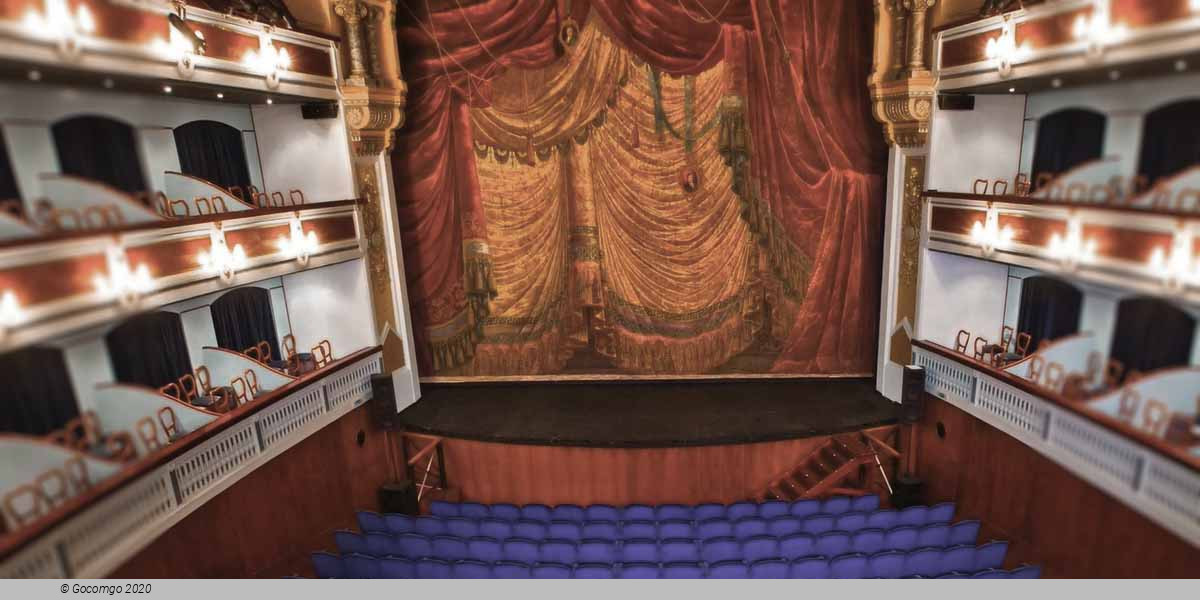Teatre Principal de Castellón (Castellón de la Plana, Spain)
Teatre Principal de Castellón

The Teatre Principal de Castellón is a theater located in the city of Castellón de la Plana. It was designed by the architect Godofredo Ros de Ursinos and is located in the Plaza de la Paz. This location was criticized in its time because it closed the possibility of extending the main street in the direction of Valencia, so the area was familiarly called as closed, as it prevented the passage in this direction. The civilian governor approved the project the 26 of January of 1886 and the works began the 2 of October of 1890. They were finished in 1894.
The construction of the theater was one of the most important works in the city of Castellón de la Plana at that time, due to its large size, about 1700 square meters, a capacity for about 1200 people and very good acoustics. The Teatre Principal in Castellón was inaugurated in February 1894 with a zarzuela: The Guardian Angel.
The Teatre Principal is a clear example of the city's urban strength and the current that existed in Europe during the nineteenth century, to build theaters designed to accommodate a diverse audience, in which the differences between the theater of the nobility and the theater of the flat town, although the high classes continued exerting their protagonism.
Architecture
Godofred Ros de Ursinos left the presence of French influences of neoclassical cut with some eclectic decoration in the interior.
The theater consists of two main bodies: the hall and the stage (on the stage is an underground moat for the orchestra). Initially, the theater counted on a total of 1239 localities indicated in the plan that was hung during years in the ticket office of the theater.
Italian Baroque architecture influenced all of Europe, exporting a Renaissance theater model with a semicircular auditorium and a crowning colonnade. In addition to this, the arrangement of boxes instead of galleries is of Baroque origin, when a courtly theater was still conceived, as these were for a richer audience.
In the mid-eighteenth century objections arose in France to this structure, calling it classist, immoral and inappropriate for audition, although theaters continued to be designed in this format throughout the eighteenth and nineteenth centuries, as in the case of the Castellón's Main Theater, which, however, does not adhere to the fashion that arose in Germany to cancel the boxes, although the curtain that is vertically dropped was copied.
According to eighteenth-century French critics, theaters such as the Principal, in Italian, had an acoustic problem due to the combination of variegated decoration and the box office system itself. But Godofredo Ros de Ursinos knew how to balance all these architectural aspects, as the Teatre Principal de Castellón enjoys excellent acoustics.


